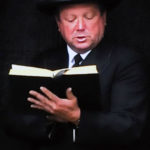Sex, Violence and Dark Events
 Ten years ago this summer Bethany House Publishers released my first novel Arena into a literary world of petticoats, bonnets and buggies. This explains its original pink and purple cover, an attempt perhaps to mitigate the fact that it was a significant departure from the usual run of Christian fiction. While Arena does include an element of romance, at heart it is an allegorical adventure with sometimes dark and violent scenes.
Ten years ago this summer Bethany House Publishers released my first novel Arena into a literary world of petticoats, bonnets and buggies. This explains its original pink and purple cover, an attempt perhaps to mitigate the fact that it was a significant departure from the usual run of Christian fiction. While Arena does include an element of romance, at heart it is an allegorical adventure with sometimes dark and violent scenes.
I’ve received a full spectrum of responses to it, from, “Fabulous!” “Best book I’ve ever read!” “Changed my relationship with God,” to the inevitable “This book is neither good nor Christian…” and “…contains much graphic horror and implied sexual abuses… not recommended as a positive experience for anyone seeking to grow closer to God.”
I understand that some readers are made very uncomfortable reading “graphic horror and implied sexual abuse,” but does that mean neither can ever be acceptable elements in Christian fiction, regardless of the purpose they might serve in that fiction? Should Christian authors of speculative fiction – or any fiction – refrain from putting “dark and violent things” into their novels as a matter of principle, out of consideration for these “weaker brothers?”
I say no. For one thing, no one can force someone to read a book. If you don’t like what you’re reading, stop reading it. If you don’t like what a particular author did, don’t read any more of that author’s books. It’s as simple as that.
Perhaps this sounds unkind, but in my view the purpose of writing fiction is to shed light on the human condition, with emphasis on how Christianity affects that condition. This won’t happen if we bar ourselves from actually presenting the human condition as it is.
We live in a fallen world, with fallen people and even as Christians saved by grace, we retain that old sinful flesh which sets itself against the Spirit and on occasion gets the better of us. A single moment under fleshly influence can turn a good man into a murderer, and a good woman into an adulteress. I can’t imagine why we should not write of such things, if only to warn others of how easily we all can be pulled down.
This is so, not merely because of our own weaknesses, but because we have enemies: unseen spiritual beings dedicated to blinding the minds of the unsaved and getting the saved distracted, confused, entangled, indifferent and defeated. All of us, whether we know it or not, are engaged in an ongoing battle that won’t end until we die.
It is this battle I have been called to write about in allegorical form, and so, for me, portraying violence in my stories, sometimes graphically, goes with the territory. My allegories come in the form of action adventure, action that often involves violence.
Though some may object to this, I stand on the Bible’s teaching that violence is not wrong in and of itself. That, in fact, the use of righteous violence is necessary for the protection of our freedom from those who would take it through the use of evil violence.
Our unseen enemies, the fallen angelic host, have throughout history provoked the leaders of pagan nations to amass great armies in an attempt to invade and conquer first the nation of Israel, and later the succession of predominantly Christian nations that have arisen since the coming of Christ. Without a military force to stand against these invading armies, no one would be free to believe in Christ, to gather in worship, or to evangelize.
Crime, the domestic side of evil violence, has a similar effect if uncontrolled, thus, both hostile foreign nations and home grown criminals threaten the freedom of a country’s citizens. Which is why I thank God for the soldiers and police officers who are even now defending our freedom to worship; and I’m grateful I live in a country where if it came down to it I would have the right to defend my own life with violence if need be.
Because ultimately the only way the evil violence in this world can be stopped or held at bay is through the use of a corresponding righteous violence. I greatly enjoy stories of courageous men and women who are called to this sort of action.
A second area of prohibition in fiction concerns sexual sins. Is it really okay to have one’s characters sin in this area? Why not? People are sinners. Sinners sin. Why should sins of guilt, worry, judging, criticizing, arguing, arrogance, and whining and moaning about one’s lot in life be acceptable, but sexual sins out of bounds? To me it’s how the incident is handled, and what this particular sin’s purpose and place in the story is. Does the plot or the character’s spiritual growth (or backsliding) hinge on this failing? Will it ultimately serve to illuminate God’s grace? If it does, then it belongs in the story.
 In the case of my second novel The Light of Eidon, that was very much the situation. My protagonist, who had formerly been an acolyte in a false religion, had to break every vow he’d made by the time he met up with the one true god Eidon. He had to have nothing left with which to win Eidon’s approval. I didn’t realize this at the first, however. And when I wrote the sequence of events leading up to the moment of sexual temptation, I fully intended for him to abstain.
In the case of my second novel The Light of Eidon, that was very much the situation. My protagonist, who had formerly been an acolyte in a false religion, had to break every vow he’d made by the time he met up with the one true god Eidon. He had to have nothing left with which to win Eidon’s approval. I didn’t realize this at the first, however. And when I wrote the sequence of events leading up to the moment of sexual temptation, I fully intended for him to abstain.
But then as we got to the middle of it, knowing who he was – still an unbeliever at the time — and what he faced, I realized there was no way he’d choose abstinence. I also began to see just how many elements not only led into this action but away from it and in the end I knew I had to let him do it.
Even so I kept asking the Lord for another path; there would be readers who wouldn’t like what I’d done. He only made it clearer this was the way. So that’s how I wrote it and hindsight has only confirmed the rightness of my decision.
Finally, what about those nebulous “dark events?” Well, if you’re writing a book about battling evil, where you must define it and in fact translate the invisible to a visible representation for the sake of a story, you’re going to have dark events. The cool thing about darkness is that it’s the place where we can best see the light.
When we’re in a pit of despair, or fear, or hatred, or disaster… and God comes into these things with His light, His forgiveness, His power … we sit up and take notice. Sin and dark situations illuminate the need for God’s grace and power, and the fact He’s got both. We see it. We remember it. We learn from it in a deeply personal way.
We can also learn by reading about the experiences of others, even if those others are only make-believe. Sometimes the darker the journey, the brighter the resolution and the more powerful the lesson.
Now should young children read books with all or even some of these potentially objectionable elements in them? Probably not. Most young children have no frame of reference for such things, particularly in the area of sexuality – in which case the first line of defense and information is the responsibility of the parent.
But when they do have the essential frame of reference and are old enough to understand what’s going on, why wouldn’t you want to reinforce the matter in fictional form? What a fantastic opportunity to discuss what was done, why the character chose to do it, why it was wrong, what the consequences were in the story itself, and finally, to remind them of the ever available grace of God, no matter what the failing.
There is, then, a proper way of viewing and handling all three areas of potentially objectionable content – sex, violence and the so-called “dark events.” I am convinced they have their place in speculative stories in particular, and can be used to great advantage to illuminate truth and teach it. They can also be used for the wrong reasons and serve the side of darkness; it depends on the message. But they are not by any means something that should never appear in Christian fiction.
I would submit that they are in essence essential to my own interpretation of speculative fiction and my storytelling passion. For in the end, God uses the wrath and failure of man to praise Him. Sin, evil violence and darkness will not stand before His everlasting grace and righteousness and glory. In the end, they will all pass away, the final battle won, and we who have believed will live in the Light forever.
– – – – –
 Karen Hancock writes Christian fantasy and science fiction. Her first novel, Arena has just been repackaged and re-released in paperback by Bethany House. She is currently working on her seventh novel, a science fantasy set on a distant planet whose underground civilization embodies the kingdoms of light and darkness as they vie for the allegiance of its citizens.
Karen Hancock writes Christian fantasy and science fiction. Her first novel, Arena has just been repackaged and re-released in paperback by Bethany House. She is currently working on her seventh novel, a science fantasy set on a distant planet whose underground civilization embodies the kingdoms of light and darkness as they vie for the allegiance of its citizens.
She has won Christy Awards for each of her first four novels–Arena and the first three books in the Legends of the Guardian-King series, The Light of Eidon, The Shadow Within, and Shadow over Kiriath.
Karen graduated from the University of Arizona with bachelor’s degrees in biology and wildlife biology. She enjoys sketching, blogging, reading, playing with her dog and making greeting cards. She and her husband reside in Arizona.
For discussion and further information, Karen invites you to visit her blog and her website.







































While I would abstain from stating that their portrayal is mandatory, I would say that portrayal of the consequences of our sinful and fallen nature is beneficial depending on the context of the story. Childrens’ and adults’ stories should each be discerning in these areas, given the context of the audiences that they are trying to reach. After all, one only has to look at the Scriptures to see the results of the fallen nature and its effect on believers and unbelievers alike. A great example is the story of David. Scripture doesn’t sugar coat anything, and I think that in good fiction, a Christian writer should be free in this area, as long as the reader is allowed to realize that the disgusting legacy of sin is the result of the fall and its effect on everything that we do and are, and that the story has redemptive elements within it. I think that Christians should be in the world but not of the world, and fiction that portrays realistic sin and redemption will fit into that worldview.
I think you hit the nail on the head. Showing the world through a Christian worldview does involve the fact that sin exists and it has consequences. The extent to which the sin and consequences are shown depends on the audience.
Thanks for the comments, Jmsaenz and Galadriel. Your thoughts remind me of something I sort of hinted at but don’t think I really said in the actual post — which is that I think the ultimate purpose behind showing the failures and sins of the characters in Christian fiction should not only lead to the concept of redemption in terms of someone believing in Christ but also in demonstratings ways in which we as Christians deal with both the sins and their consequences… Confessing them as paid for by Christ on the cross, putting them behind us and moving forward in God’s endless mercy and grace. That way a story ultimately becomes more about who He is and what He’s done, than us and our failure. At least, that would be my hope.
Karen, I’m glad you went this direction with the post. It brings up a lot of great points, and reinforces that we as believers in Christ aren’t instantly perfect (at least, not for the purposes of this side of eternity) once we accept Him as savior. I enjoyed Light of Eidon very much, and a large part of that was the realistic responses of the characters. That was continued throughout the series, which made the series even better.
Great books, Karen! I can’t wait until your next one is available.
Thanks for the kind and encouraging words, Dave on both this blog post and on the books. As for the next one… I’d better get back to work, now!
I totally agree and in fact think there is a responsibility of those who are called to write those events for a couple of reasons.
First, God did it. He didn’t hold back in the Bible but mentioned when people did horrible things whether sexual, evil or “dark”. I have read incidents of murder, rape, incest and much more. In fact, if the Bible was a book written today it would be in a very adult section. So if God was not afraid to handle these topics neither should we be.
Second, what if what God guides you to write happens to be the answer and path that someone dealing with that subject needs to get out. For example, suppose there is a prostitute who doesn’t know God. One day, she happens to get a Speculative Fiction book where the main character is a pastor who is called to street ministry. In this mission he finds a prostitute and God tells him to marry her (just like Gomar) and she comes to Jesus. Now if this prostitute is reading this she can relate to the character in the book if any only if the subject is handled with accuracy, not being grotesque but being respectful of the truth of the situation. It causes this prostitute to go to church and see out God and eventually get saved. All because she related to a character in a book that was not afraid to handle the dark topics.
Finally, because we have it all around us. Jesus told us that the Kingdom of heaven suffers violence and the violent take it by force (Matthew 11:12). This was not meant to just be violence of praying on the altar at your church once a week. It is meant that there is a spiritual warfare out there that we are supposed to be actively engaged in. SO many Christians abdicate their responsibility to join and fight the good fight that we are losing this battle. In fact, I was recently told by God that the devil is laughing at us and will continue to do so as long as we roll over and play dead and not engage the enemy. Fictional tales describing how to engage and attack can only service to build up and equip the army of God.
I am probably in a minority but I think that real life situations should be handled in fiction or else our characters will not be realistic. We can do it tastefully but I think we need to do it.
Love in Christ!
Well said, Karen. Too many Christian novels have left me unsettled in how vanilla the characters and plot were. Deep down people identify with characters and situations that feel more like real life. I long ago stopped thinking my witness as a Christian required me to be perfect – instead my witness is my need for God’s grace. People can strongly identify with characters on the path to God. Reading about someone moving toward God can be powerful if portrayed well and there are a lot of spec readers who need to see characters that both reject and receive those actions in fiction. You are throwing seeds out that you hope are just one piece of a mosaic that God can use to draw people to Him.
Thanks, Paul! You’re so right about our witness not having to be perfect. In fact, God told Paul (the other Paul!) that His strength comes out of our weaknesses, not His strengths. That way everyone can see it’s God whose doing the work, not us.
“A single moment under fleshly influence can turn a good man into a murderer, and a good woman into an adulteress. I can’t imagine why we should not write of such things, if only to warn others of how easily we all can be pulled down.”
This really resonated with me. I’ve seen this happen first-hand (both examples) and it is ridiculous for Christians to act like it doesn’t. If our stories are simply childish fantasies of how we wish reality would be, how does that help strengthen us in the midst of real trials? Real downfalls? Real tragedies?
I am so thankful to have found this (and other) groups of Christian authors who see the disconnect and are walking a different path. It’s an amazing encouragement to realize I’m not alone!
I think the one thing we need to consider in this, lest we topple over in the other direction, is how much — how deep — do we go into the moment of temptation? I’ve revisited this question as I’ve read many blog posts about the 50 Shades books, and the following comments.
I think the Bible offers an excellent model to follow, actually. Sex and violence are handled very differently in there. The Bible is often graphic in the display of violence — Jael’s tent peg, Samuel’s beheading and subsequent chopping up of the king of Amelek. It doesn’t seem to pull many punches in that area.
On the other hand, we can take for example the rape of Absolam’s sister. What the Bible does show is, first, that it happened, and second the situation up until the point when he grabs her, and she begs him not to do it. Then we skip down to where he sends her away, and she leaves weeping.
But the act is only mentioned in basic, bland words. I think this is because, as the Grey books have brought to the forefront, to go deeper can arouse the reader, which then can damage hearts. Paul warns that sexual immorality is the only sin that is internally damaging, and it’s something we must not only resist, but flee.
God made sex a great gift — so good, that when twisted by sin, it can destroy us. So we must be very careful when handling this subject — for the sake of our readers and our own hearts.
As the Bible shows, the consequences can be just as profound without the details — take David and Bathsheba for example. We aren’t told what happens beyond when he summons her — but we are told of the years of pain.
A historical fiction series (The Lymond Chronicles) by an excellent, secular author, Dorothy Dunnett, I feel walks the line well between allowing her characters to fail in every way possible, and experience every subsequent consequence, but keeping a chaste distance from those moments. (The only author I know who is as harder on her characters than Karen Hancock.)
On the other hand, my dad recently read a series about the pre and post Noah’s flood times by a pastor (Lost Worlds series.) In the middle book, my dad had to put the book down a few times because he felt that some scenes between Ham and his wife were were taking his mind in the wrong direction. It would not have hurt the story line, and frankly, made the book more interesting, if he’d found other, more subtle ways, to draw Ham into sin, than the repeated bedroom scenes.
Anyway…. those are my thoughts on the matter.
Thank you Karen for starting this discussion, and not being afraid to make your characters real. I love your LOTGK books, and frankly, wish there were more …. hint, hint 😉
Thanks, Joanna. Glad you enjoyed the books!
You’re right about the Bible being downright gory when it comes to violence, yet not really going into detail about the sexual sins. Although at times the original languages are a bit more evocative than the English translations, still, it’s little more than “seized” rather than “took” and “raped” rather than “lay with.”
As I consider off the top of my head, it seems to me we get few details in the Bible in part because it’s never the sexual sin/act that’s the problem so much as the other sins that prompt it or come out of it.
In the case of David and Bathsheba, for example, the overall story had little to do with the relationship between the participants and was instead about the steps a mature believer — the man who faced down Goliath because of his faith in God — can take when he turns his back on God.
First is the fact that David was not supposed to even be there lazing around the palace sleeping through the day, but out on the battlefield leading his army as 2 Sa 11:1 implies, and Uriah reinforces in his protest in vs 11. If David had been where he was supposed to have been none of this would have happened — in itself an important message for us.
Second, he apparently didn’t recognize Bathsheba since he had to “inquire about” her, so he must not have known her. This wasn’t about a relationship, but an exercise of lust and an abuse of power, and came out of the sin that God called him on through Nathan in 2 Sa 12:7-10: ingratitude. Here God’s provided everything for him and he was still disatisfied, and as a result had to go out and murder one of his loyal men and take his wife, because the seven wives he already had weren’t enough. Gross. And breaking civil law as well.
The specifics of the adultery/rape incident would have little real bearing on the story God is relating to us, so no need to put them in.
Which I guess supports the point I made in my original post that such specifics only go in if they serve the story — or perhaps in this case, the point of the story.
As to the topic of how far we as authors ought to go with the specifics of sexual encounters when the story really is about the relationship… well, I think I probably have enough to say about that to make an entire blog post. In other words, it’s complicated. 🙂
Thanks for the comment. I appreciate your insights and the thoughts they have stimulated.